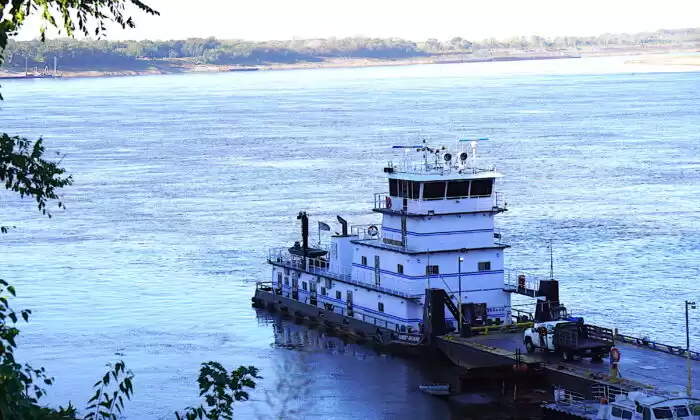Mississippi River Saltwater Intrusion: New Orleans Declares Emergency
Saltwater intrusion from the Gulf of Mexico is threatening drinking water supplies for 900,000 residents in Louisiana. Governor John Bel Edwards has declared an emergency and plans to request federal aid. The Mississippi River's low water levels have allowed the saltwater to intrude, and officials are working to mitigate the impacts and ensure safe drinking water. The saltwater wedge has already traveled 15 miles inland in just seven days, and without significant rainfall, an underwater levee will be overtopped, requiring freshwater to be transported by barge to water treatment plants.
A massive influx of saltwater from the Gulf of Mexico is making its way up the Mississippi River, which is already suffering from a severe drought. This intrusion poses a threat to the drinking water supplies of around 900,000 Louisiana residents, prompting officials to take urgent action.
Louisiana Governor John Bel Edwards, along with state and local leaders, emergency officials, and representatives from the U.S. Army Corps of Engineers, addressed the situation at a press conference. Governor Edwards acknowledged the challenging nature of the problem, explaining that the Army Corps of Engineers has been working to mitigate the issue. However, due to the lack of relief from the dry conditions, the intrusion of saltwater is worsening.
In response to the crisis, New Orleans Mayor LaToya Cantrell declared a state of emergency for the city. Governor Edwards also announced plans to request an emergency declaration from the federal government, in order to secure additional aid for Louisiana.
The drought in the Mississippi River basin has led to historically low levels of rainwater, which has compromised the river's ability to prevent saltwater intrusion. This poses a significant risk to the freshwater intake used for drinking water supplies in municipalities across southeast Louisiana, including New Orleans.
Governor Edwards emphasized that the top priority is ensuring an adequate supply of safe drinking water for the affected areas. He reassured the public that there is no need for panic, as officials are actively working to mitigate the impacts of the saltwater intrusion.
According to Colonel Cullen Jones, Commander and District Engineer of the New Orleans District, Army Corps of Engineers, the saltwater wedge has already traveled approximately 15 miles inland in just seven days. He explained that saltwater intrusion becomes a concern when the flow of the Mississippi River drops to around 300,000 cubic feet per second. Currently, the flow is much lower, at around 148,000 cubic feet per second.
To raise the flow above 300,000 cubic feet per second, approximately 10 inches of rainfall would be needed across the entire Mississippi Valley. Colonel Jones estimated that construction efforts would take around 24 days and could delay the progression of the saltwater wedge by 10 to 15 days.
However, without significant rainfall, the underwater levee will be at risk of being overtopped. In preparation for this scenario, plans are in place to transport freshwater by barge to local water treatment plants. Initially, 15 million gallons of freshwater are expected to be barged in, with the capacity to increase this to 36 million gallons per day as needed.
Governor Edwards also mentioned additional measures being taken, such as delivering bulk bottled water and utilizing reverse osmosis water purification units. A health official clarified that water systems issue a health advisory when the salt concentration exceeds 250 parts per million. However, for taste reasons, most people would stop consuming the water before it becomes a health hazard.
Reports have already surfaced of people rushing to stock up on bottled water in certain parts of Louisiana. Governor Edwards urged residents not to panic-buy large quantities of bottled water, as there is no shortage in the state. Businesses have been asked to increase their inventories to meet the demand.
In conclusion, the intrusion of saltwater into the drought-stricken Mississippi River is a pressing issue that threatens the drinking water supplies of Louisiana residents. Officials are actively working to mitigate the impacts and ensure the availability of safe drinking water. Measures such as barge transportation of freshwater and distribution of bottled water are being implemented to address the situation.












Comments on Mississippi River Saltwater Intrusion: New Orleans Declares Emergency